Search titles
Displaying results 21 to 30 of 160.
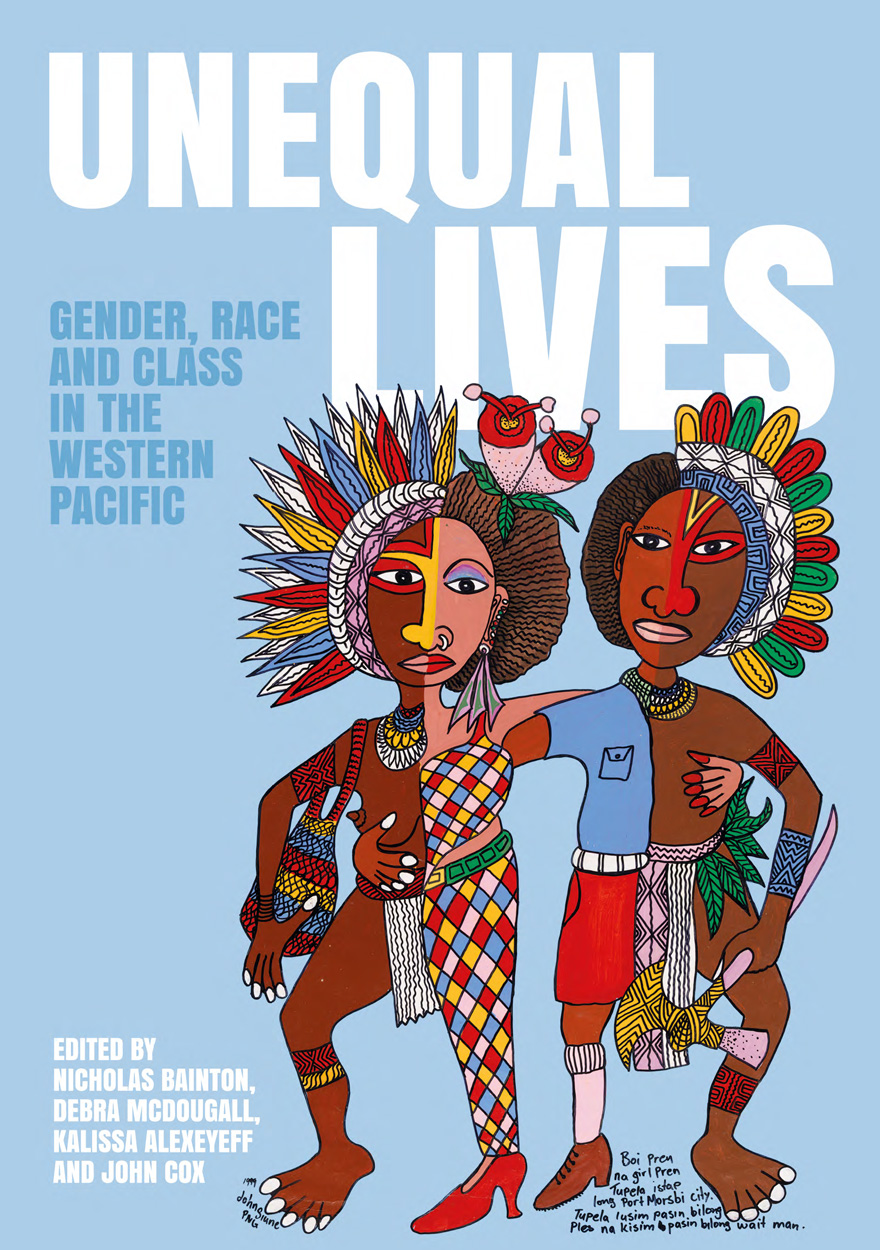
Unequal Lives »
Gender, Race and Class in the Western Pacific
Publication date: January 2021
As we move further into the twenty-first century, we are witnessing both the global extensification and local intensification of inequality. Unequal Lives deals with the particular dilemmas of inequality in the Western Pacific. The authors focus on four dimensions of inequality: the familiar triad of gender, race and class, and the often-neglected dimension of generation. Grounded in meticulous long-term ethnographic enquiry and deep awareness of the historical contingency of these configurations of inequality, this volume illustrates the multidimensional, multiscale and epistemic nature of contemporary inequality.
This collection is a major contribution to academic and political debates about the perverse effects of inequality, which now ranks among the greatest challenges of our time. The inspiration for this volume derives from the breadth and depth of Martha Macintyre’s remarkable scholarship. The contributors celebrate Macintyre’s groundbreaking work, which exemplifies the explanatory power, ethical force and pragmatism that ensures the relevance of anthropological research to the lives of others and to understanding the global condition.
‘Unequal Lives is an impressive collection by Melanesianist anthropologists with reputations for theoretical sophistication, ethnographic imagination and persuasive writing. It brilliantly illuminates all aspects of the multifaceted scholarship of Martha Macintyre, whose life and teaching are also highlighted in the commentaries, tributes and interview included in the volume.’
— Robert J. Foster, Professor of Anthropology and Visual and Cultural Studies, Richard L. Turner Professor of Humanities, University of Rochester
‘Inspired by Martha Macintyre’s work, the contributors to Unequal Lives show that to theorise inequality is a measured project, one that requires rescaling its exercise over several decades in order to recognise the reality of inequality as it is known in social relations and to document it critically, unravelling their own readiness to misjudge what they see from the lives that are lived by the people with whom they have lived and studied. This fine volume shows how the ordinariness of everyday work and care can be a chimera wherein the apparent reality of inequality might mislead less critical reports to obscure its very account. From reading it, we learn that such unrelenting questioning of what makes lives unequal becomes the very analytic for better understanding lives as they are lived.’
— Karen M. Sykes, Professor of Anthropology, University of Manchester

The Bugis Chronicle of Bone »
Publication date: April 2020
The Bugis Chronicle of Bone is a masterwork in the historiographical tradition of South Sulawesi in Indonesia. Written in the late seventeenth century for a very specific political purpose, it describes the steady growth of the kingdom of Bone from the fourteenth century onwards. The local conquests of the fifteenth century, closely linked to agricultural expansion, give way to the long conflict with the Makasar state of Gowa in the sixteenth century. Forced Islamisation in 1611 is dealt with in detail, leading finally to first contact with the Dutch East India Company in 1667.
This edition presents a diplomatic version of the best Bugis text, together with the first full English translation and an extensive introduction covering the philological approach to the edition, as well as the historical and cultural significance of the work.
A structure based on the reigns of successive rulers allows for stories about the circumstances of each ruler and, particularly, the often dramatic processes and politics of succession. The chronicle is a rich source for historians and anthropologists seeking to understand societies beyond Europe. It provides a window on to this Austronesian-speaking society before the impact of significant external influences. This is history from within, covering more than three centuries.

Pacific Youth »
Local and Global Futures
Edited by: Helen Lee
Publication date: October 2019
Pacific populations are becoming younger and this ‘youth bulge’ is often perceived as a dangerous precursor to civil unrest. Yet young people are also a valuable resource holding exciting potential for the future of island nations. Addressing these conflicting views of youth, this volume presents ethnographic case studies of young people from across the Pacific and the diaspora. Moving beyond the typical focus on ‘youth problems’ in reports by Pacific governments and development agencies, the authors examine the highly diverse lives and perspectives of young people in urban and rural locations. They celebrate the contributions of youth to their communities while examining the challenges they face. The case studies explore the impacts of profound local and global changes and cover a wide sweep of youth experiences across themes of education, employment and economic inequalities, political and civil engagement, and migration and the diaspora.
Contributors to this volume bring many decades of experience of research with Pacific people as well as fresh perspectives from early career and graduate researchers. Most are anthropologists and their chapters contribute to the interdisciplinary fields of youth studies and Pacific studies, offering thought-provoking insights into the possibilities for Pacific youth as they face uncertain futures.
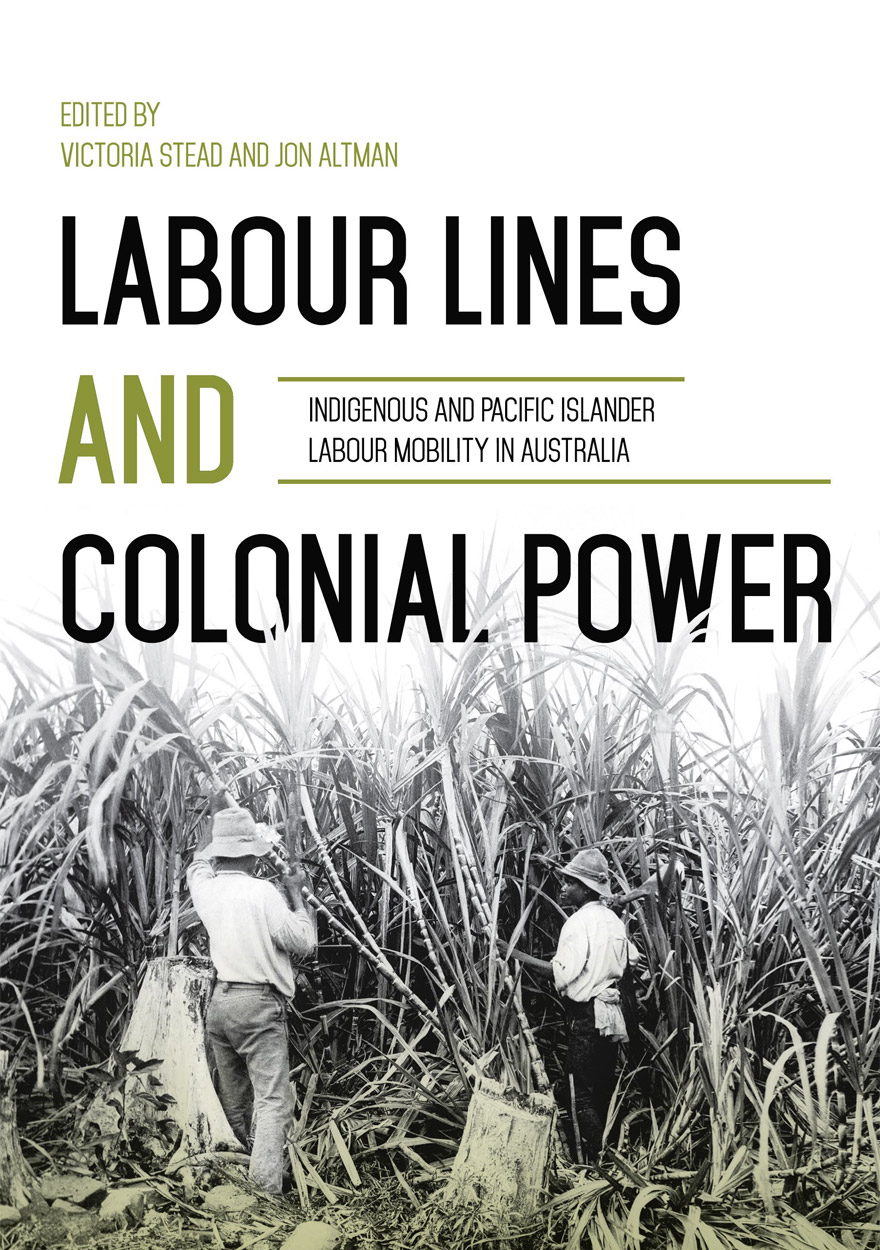
Labour Lines and Colonial Power »
Indigenous and Pacific Islander Labour Mobility in Australia
Edited by: Victoria Stead, Jon Altman
Publication date: August 2019
Today, increases of so-called ‘low-skilled’ and temporary labour migrations of Pacific Islanders to Australia occur alongside calls for Indigenous people to ‘orbit’ from remote communities in search of employment opportunities. These trends reflect the persistent neoliberalism within contemporary Australia, as well as the effects of structural dynamics within the global agriculture and resource extractive industries. They also unfold within the context of long and troubled histories of Australian colonialism, and of complexes of race, labour and mobility that reverberate through that history and into the present. The contemporary labour of Pacific Islanders in the horticultural industry has sinister historical echoes in the ‘blackbirding’ of South Sea Islanders to work on sugar plantations in New South Wales and Queensland in the late nineteenth and early twentieth centuries, as well as in wider patterns of labour, trade and colonisation across the Pacific region. The antecedents of contemporary Indigenous labour mobility, meanwhile, include forms of unwaged and highly exploitative labouring on government settlements, missions, pastoral stations and in the pearling industry. For both Pacific Islanders and Indigenous people, though, labour mobilities past and present also include agentive and purposeful migrations, reflective of rich cultures and histories of mobility, as well as of forces that compel both movement and immobility.
Drawing together historians, anthropologists, sociologists and geographers, this book critically explores experiences of labour mobility by Indigenous peoples and Pacific Islanders, including Māori, within Australia. Locating these new expressions of labour mobility within historical patterns of movement, contributors interrogate the contours and continuities of Australian coloniality in its diverse and interconnected expressions.
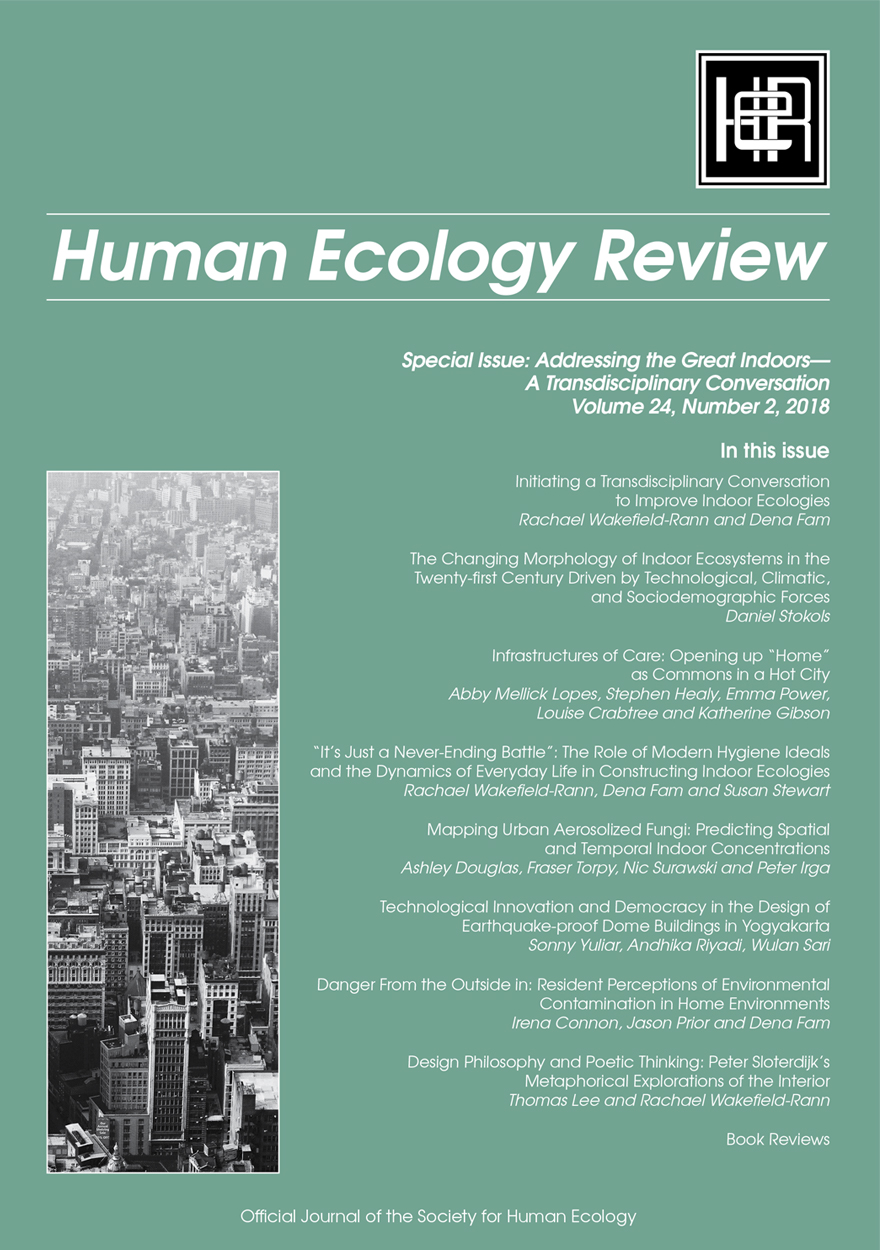
Human Ecology Review: Volume 24, Number 2 »
Special Issue: Addressing the Great Indoors — A Transdisciplinary Conversation
Publication date: December 2018
Human Ecology Review is a semi-annual journal that publishes peer-reviewed interdisciplinary research on all aspects of human–environment interactions (Research in Human Ecology). The journal also publishes essays, discussion papers, dialogue, and commentary on special topics relevant to human ecology (Human Ecology Forum), book reviews (Contemporary Human Ecology), and letters, announcements, and other items of interest (Human Ecology Bulletin). Human Ecology Review also publishes an occasional paper series in the Philosophy of Human Ecology and Social–Environmental Sustainability.
Download for free
Not available for purchase
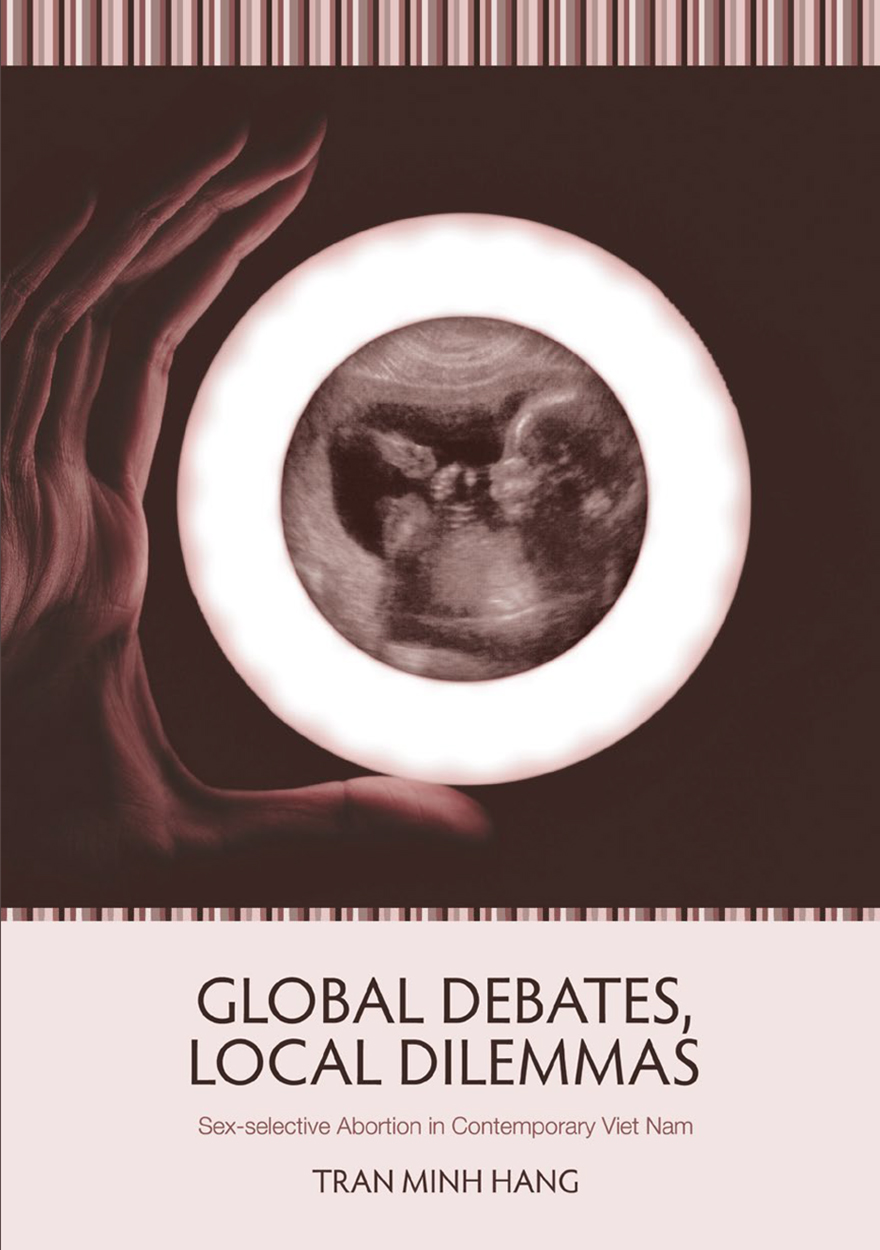
Global Debates, Local Dilemmas »
Sex-selective Abortion in Contemporary Viet Nam
Authored by: Tran Minh Hang
Publication date: December 2018
The practice of sex-selective abortion is on the rise globally, stirring debates about gender inequality, medical ethics and reproductive autonomy. This book is the first ethnography to document practices of sex selection in Viet Nam. It shows how and why abortions are used to select the sex of children and how Vietnamese individuals and health professionals are implicated in this illicit and controversial practice. Telling the stories of women who have undergone sex-selective abortions, it traces their passage through sex determination and abortion decision-making phases, and investigates their experiences during and after their sex-selective abortions. It describes the turmoil experienced by individuals who undergo such abortions and explores their interactions with the spectrum of social actors and health institutions that facilitate practices of sex selection.
As the first ethnographic study on sex-selective abortions in Viet Nam, this book delves into socially sensitive terrain and sheds light on personally fraught individual experiences of reproductive agency. It documents societal responses to sex-selective abortions in Viet Nam and identifies gaps in the state’s capacity to regulate reproductive desire in a marketised economy. A resource for researchers, it contributes to ongoing debates on sex selection and provides a framework for developing relevant social policies, interventions and support services.
‘This pioneering study offers a nuanced and sensitive account of sex-selective abortion as human experience. Through thought provoking case studies, the book provides rare ethnographic documentation of the complex quandaries that arise as selective reproductive technologies are routinised across the globe.’
— Tine M. Gammeltoft, Department of Anthropology, University of Copenhagen

The Promise of Prosperity »
Visions of the Future in Timor-Leste
Edited by: Judith Bovensiepen
Publication date: December 2018
For the people of Timor-Leste, independence promised a fundamental transformation from foreign occupation to self-rule, from brutality to respect for basic rights, and from poverty to prosperity. In the eyes of the country’s political leaders, revenue from the country’s oil and gas reserves is the means by which that transformation could be effected. Over the past decade, they have formulated ambitious plans for state-led development projects and rapid economic growth. Paradoxically, these modernist visions are simultaneously informed by and contradict ideas stemming from custom, religion, accountability and responsibility to future generations. This book explores how the promise of prosperity informs policy and how policy debates shape expectations about the future in one of the world’s newest and poorest nation-states.
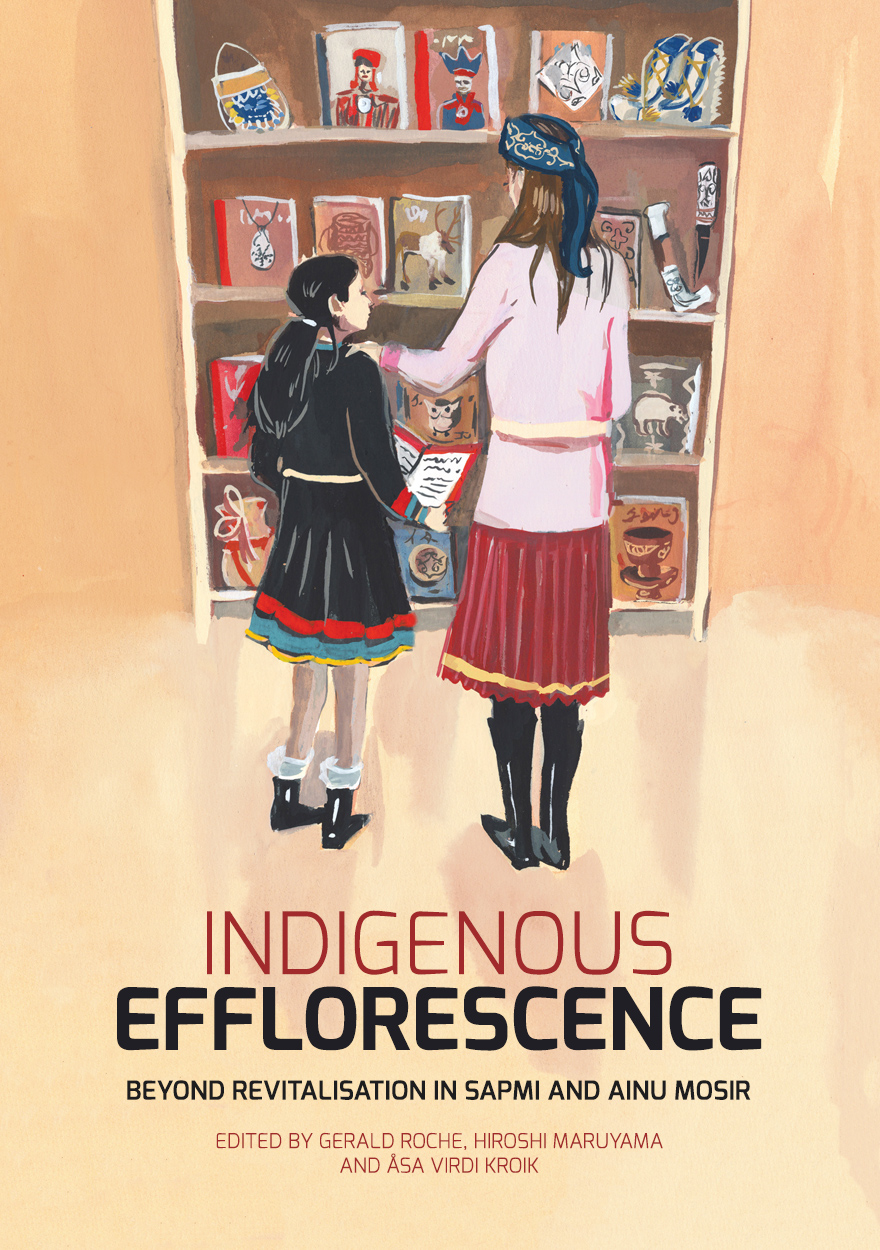
Indigenous Efflorescence »
Beyond Revitalisation in Sapmi and Ainu Mosir
Publication date: December 2018
Indigenous efflorescence refers to the surprising economic prosperity, demographic increase and cultural renaissance currently found amongst many Indigenous communities around the world. This book moves beyond a more familiar focus on ‘revitalisation’ to situate these developments within their broader political and economic contexts. The materials in this volume also examine the everyday practices and subjectivities of Indigenous efflorescence and how these exist in tension with ongoing colonisation of Indigenous lands, and the destabilising impacts of global neoliberal capitalism. Contributions to this volume include both research articles and shorter case studies, and are drawn from amongst the Ainu and Sami (Saami/Sámi) peoples (in Ainu Mosir in northern Japan, and Sapmi in northern Europe, respectively). This volume will be of use to scholars working on contemporary Indigenous issues, as well as to Indigenous peoples engaged in linguistic and cultural revitalisation, and other aspects of Indigenous efflorescence.

The Bounty from the Beach »
Cross-Cultural and Cross-Disciplinary Essays
Edited by: Sylvie Largeaud-Ortega
Publication date: October 2018
The Bounty from the Beach is a collection of cross-disciplinary essays, capitalising on a widely shared fascination for the Bounty story in order to draw scholarly attention to Oceania. It aims to reorient the Bounty focus away from the West, where most Bounty narratives and studies have emerged, to the Pacific, where most of the original events unfolded. It investigates the Bounty heritage from the standpoint of the beach, Greg Dening’s metaphor for culture contact and conflict in the Pacific Islands: this liminal place that transforms Islanders and voyagers, islands and ships, each time it is crossed. It analyses the way newcomers create new islands, and how these changes may occasionally impact the world. This volume examines the ‘little people’, to use another of Dening’s expressions, who stand ‘on both sides of the beach’: they are Polynesian or European or, as beaches are crossed and remade, no longer one without the other, but bound together in processes of change. Among these people are Bounty sailors, beachcombers, Pitcairners and indigenous Pacific Islanders of the past and the present.
This collection also explores the works of some renowned Western writers and actors who, turning mutineers after their own fashion and in their own times, themselves crossed the beach and attempted to illuminate the ‘little people’ involved in the Bounty narratives. These prominent writers and actors put the spotlight on characters who were silenced on account of race, class or geographical distance from the dominant centres of power. Inspired by Dening’s empowering voice, our purpose is to fill that silence.
Just as it criss-crosses the ocean, progressing with the ship through time and space, The Bounty from the Beach ranges far and wide across disciplines, methodologies and scholarly styles. Its multidisciplinary course contributes to illuminate the multiple ways in which the Bounty heritage embraces diverse horizons. It throws light on the colonial discourse that undertook to stifle Pacific Islander agency, and the neocolonial policies that have been applied to Oceania, and still are: hegemonic moves that have led to global environmental, nuclear and ecological hazards. As a whole, the collection contends that what unfolds in this vast ocean matters: the stakes are high for the whole human community.
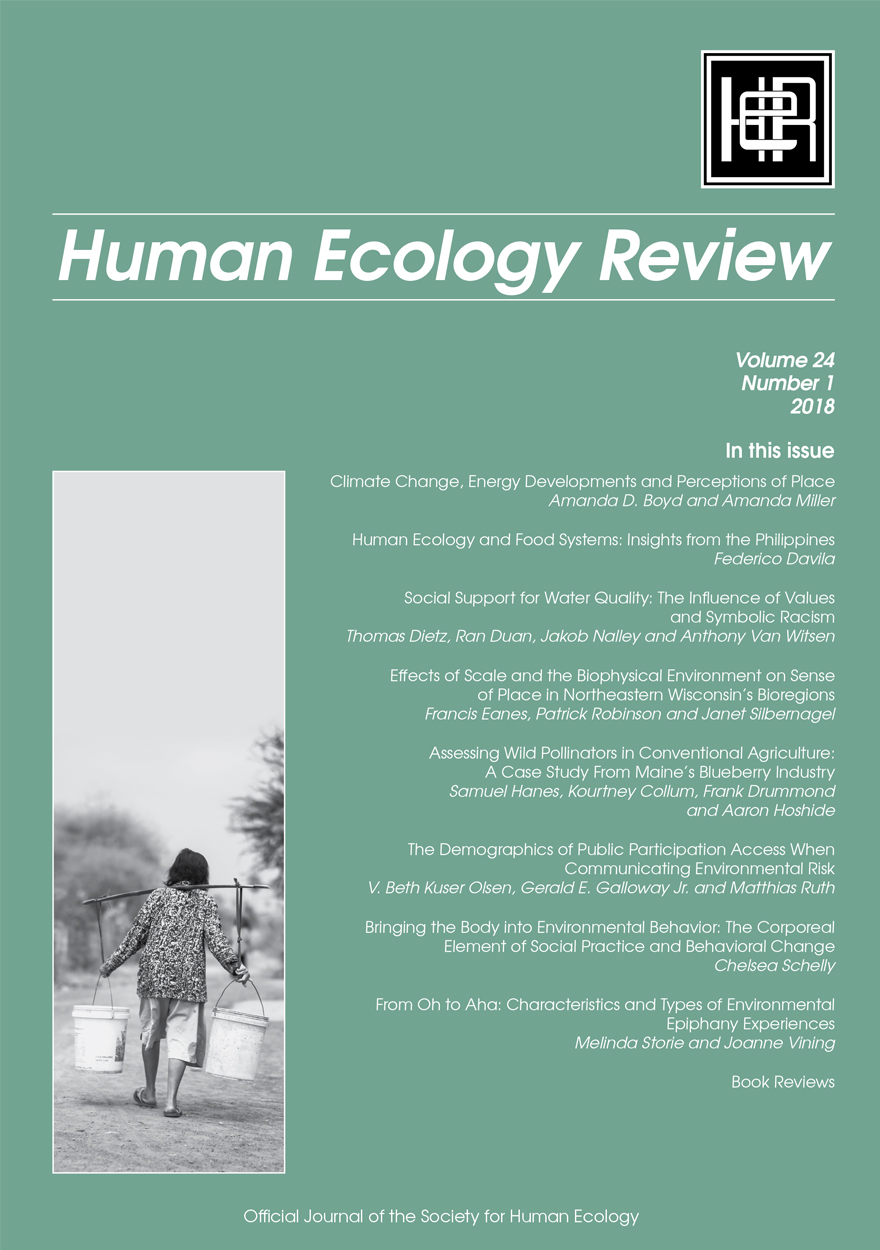
Human Ecology Review: Volume 24, Number 1 »
Publication date: September 2018
Human Ecology Review is a semi-annual journal that publishes peer-reviewed interdisciplinary research on all aspects of human–environment interactions (Research in Human Ecology). The journal also publishes essays, discussion papers, dialogue, and commentary on special topics relevant to human ecology (Human Ecology Forum), book reviews (Contemporary Human Ecology), and letters, announcements, and other items of interest (Human Ecology Bulletin). Human Ecology Review also publishes an occasional paper series in the Philosophy of Human Ecology and Social–Environmental Sustainability.
Download for free
Not available for purchase



